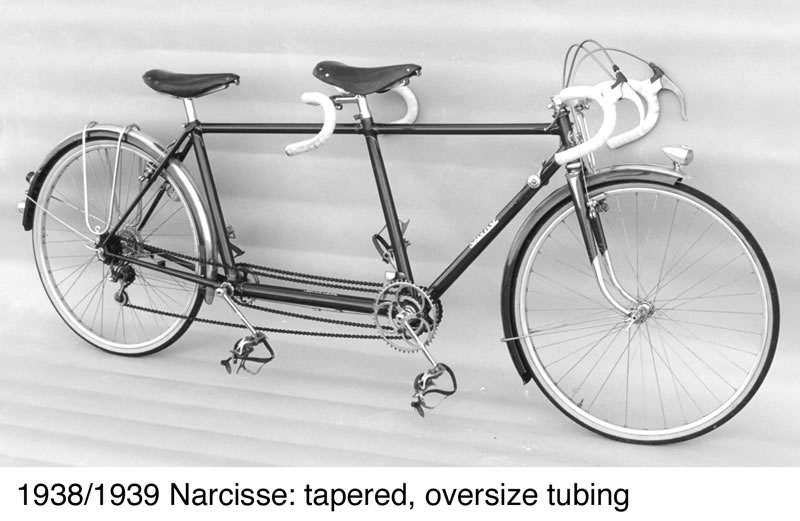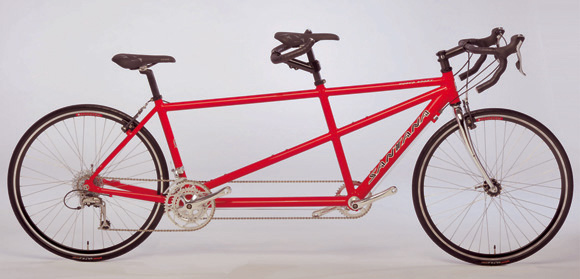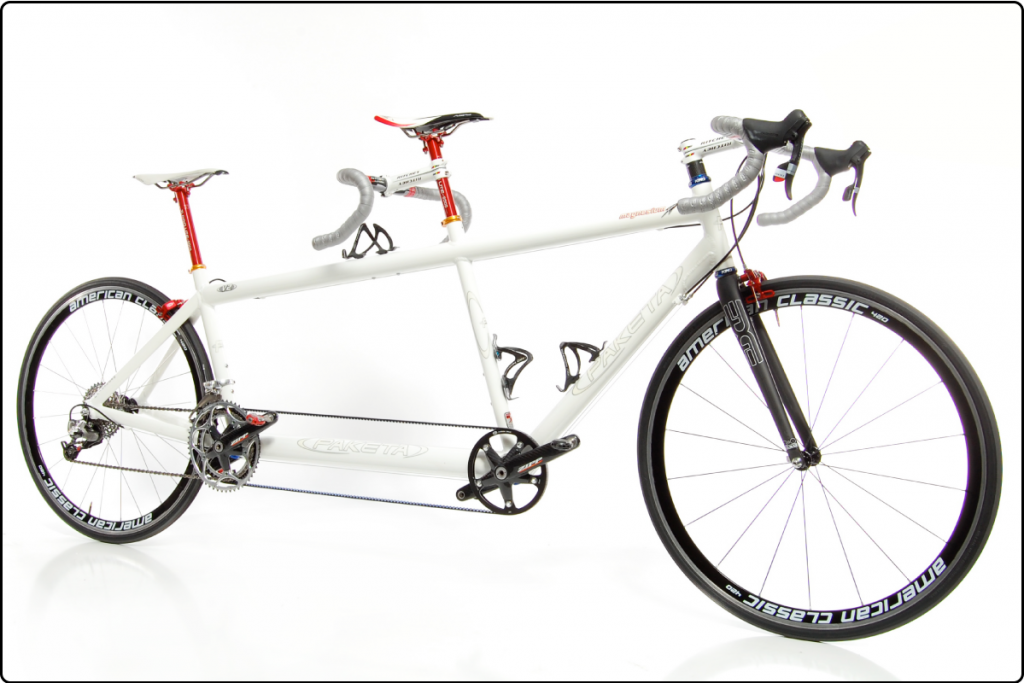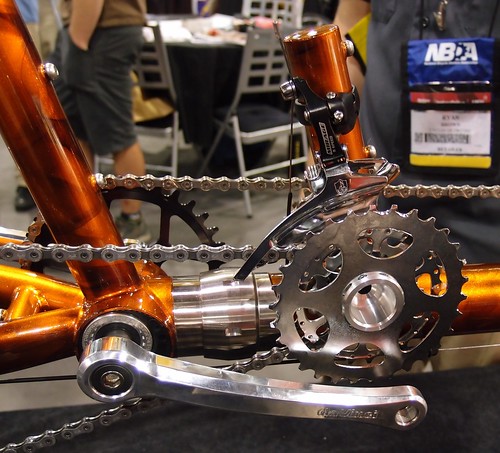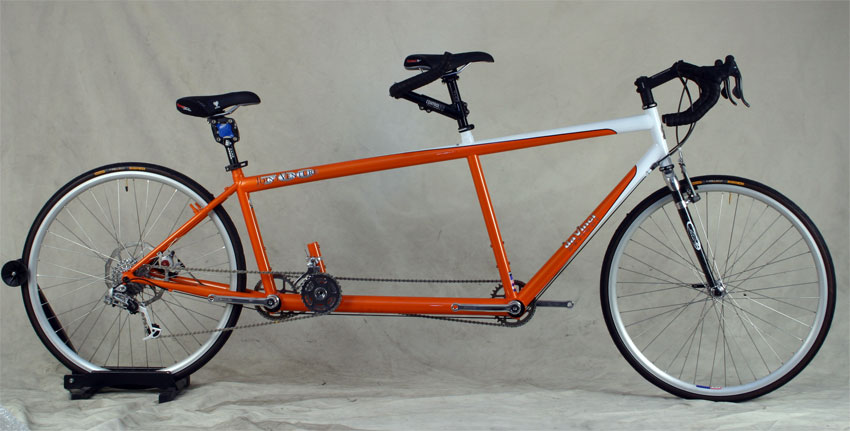Tandems (bicycles-built-for-two-or-more for the uninitiated) are amazing bits of work. More than anything else, a good tandem is FAST. A tandem is not as heavy as 2 individual bikes, does not have twice the rolling resistance and, most importantly, has essentially the same frontal area as a single bike with two, three or even four times the power driving it. The increase in power without an increase in wind resistance explains the use of trips and quads for pacing (rolling windbreak) on the track before dernys came into the picture.
There are at least four different approaches to getting the power from 2 pairs of legs to the rear wheels.
The crossover front (seems to have been popular with French constructeurs):
*
The crossover rear (most common):
*
And then the 2 reasons for this post…
*
The single side rear (a single side front would be crazy – which means it’s been done somewhere). I found the Paketa V2r by googling racing tandem bicycle; after seeing the bike that ends this post, I was curious about what the current road racing state of the art might look like. I’m not surprised that the timing chain (the link between the captain and the stoker) isn’t a chain at all – belts are popping up in applications where the chainline doesn’t vary – singlespeeds and hub-geared bikes, especially. The biggest advantage that single side rigs have over crossovers has to do with cranksets. On a normal crankset, the left pedal/crankarm is reverse threaded. If it were threaded normally, rotational forces would tend to loosen things up. Since 3 of the crankarms on a crossover drive are on the ‘wrong’ side (both in front and the left on the rear on a crossover rear, for example), you need to purchase special tandem cranksets to get the threading right. On a single-side, the cranks are set up just as they’d be on a solo bike; thus, one can use a super light state-of-the-racing-art set of cranks. You give up the ability to use a triple chainwheel setup, but if racing is the goal, one presumably doesn’t need a super low gear. The folks who make the bike shown below make some other claims about their single side setup regarding torque and bearing stress that I have some trouble getting my head around. It seems to me that the stresses would just switch sides, not somehow balance out. That aside – still a pretty dang cool bicycle.
*
Finally, the bike that started me thinking about drivetrains in the first place. This tweet led to this photograph:
Which led to me learning about daVinci Design’s drivetrain. I’ll quote their website (I like the sound of jackshaft rather than intermediate shaft – feel free to substitute as you read):
The main component of da Vinci Designs’ ICS is an intermediate drive shaft six inches in front of the rear bottom bracket. The intermediate shaft has two single-speed freewheels on the left side that are independently driven by the cranks at twice the rotating speed and half the torque. On the right side of the shaft, four Hyperglide™ cogs drive the bike. The chain rings are half the size as those on a conventional tandem because of the double rotation of the intermediate shaft. The combination of 12-, 18-, 24-, 30-tooth driving gears equals 24-, 36-, 48-, 60-tooth chain rings. *
Wicked smart! Were I to spring for a tandem (good tandems are NOT cheap), this would be #1 on the list with a bullet. I wonder whether you could get away with eliminating the freewheel body on the rear wheel? After all, the captain and stoker are already decoupled by virtue of the freewheels on the jackshaft and keeping the ‘final drive’ rotating all the time would mean that the captain could shift even when no one’s pedalling. Da Vinci – call me. I’ll sign the idea over in return for just one of your gorgeous machines.
*
To finish up, some supplementary material in the form of YouTube videos. First, you didn’t think I’d talk about tandems without embedding this, did you?
Some Paralympic Tandem Pursuit action (the stoker is blind or visually impaired). In pursuit races, opponents start of opposite sides of the velodrome and whichever team closes on the other, wins. In this race, there’s a full-fledged catch (5:35).
No tandems in this one, but it does serve to emphasize the importance of aerodynamics and, dang, team pursuit is just about the most graceful thing in sports.
Wheeeeee!

